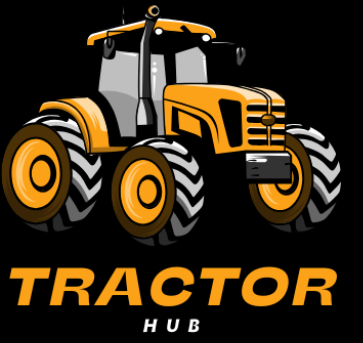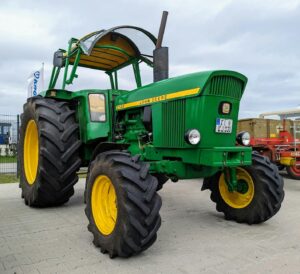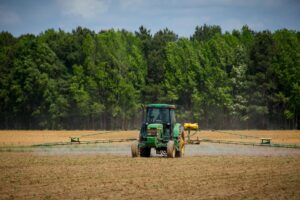If you own a tractor—whether for farming, landscaping, or industrial work—then tractor insurance is not just a smart idea; it’s often a necessity. Accidents, theft, mechanical damage, and legal liabilities can cost you thousands of dollars. That’s why having the right insurance coverage can save your investment and provide peace of mind.
In this comprehensive guide, we’ll explain everything you need to know about tractor insurance in 2026, including types of coverage, cost factors, legal requirements, how to choose a provider, and FAQs.
What is Tractor Insurance?
Tractor insurance is a specialized type of vehicle insurance that protects tractors used in farming, landscaping, construction, and other commercial or personal uses. Just like car or truck insurance, it covers liability, property damage, and in some cases, theft or weather-related damage.
Depending on the provider and policy, tractor insurance may cover:
- Damage to your own tractor
- Injuries or damages you cause to others
- Theft and vandalism
- Fire and weather-related incidents
- Road accidents (if the tractor is driven on public roads)
Why is Tractor Insurance Important?
Tractors are expensive machines and often play a vital role in farming and agricultural operations. Without proper insurance:
- You risk losing thousands of dollars if your tractor is stolen or destroyed.
- You may be held financially responsible for damages or injuries you cause with your tractor.
- Your farm or business operations could come to a standstill due to equipment damage.
In many regions, tractor insurance is legally required if you plan to drive the tractor on public roads.
Types of Tractor Insurance Coverage
There are several types of coverage options depending on the usage and value of your tractor.
1. Farm Tractor Insurance
This is ideal for farmers using tractors for plowing, harvesting, or crop spraying. Coverage includes:
- Property damage
- Liability
- Theft or vandalism
- Fire and weather-related incidents
2. Commercial Tractor Insurance
For construction companies, landscaping businesses, or transport companies that use tractors as part of their daily operations. It may include:
- General liability
- Business interruption coverage
- Tools and equipment insurance
3. Comprehensive Coverage
This type provides the broadest protection and covers almost all risks including:
- Accidental damage
- Third-party liability
- Theft
- Natural disasters (flood, storm, fire)
4. Third-Party Liability Only
Covers only the damage you may cause to others or their property. This is the minimum legal requirement in many countries.
What Does Tractor Insurance Typically Cover?
| Coverage Type | What It Protects Against |
|---|---|
| Collision Coverage | Accidents with other vehicles or objects |
| Theft and Vandalism | Loss due to theft or intentional damage |
| Fire and Natural Disasters | Fires, floods, hurricanes, etc. |
| Liability Coverage | Bodily injury or property damage to others |
| Roadside Assistance | Towing, fuel delivery, emergency repair |
| Trailer Coverage | Damage or theft involving attached trailers |
How Much Does Tractor Insurance Cost in 2025?
The cost of tractor insurance can vary significantly based on several factors:
✅ Key Cost Factors
- Type of Tractor (e.g., compact vs. industrial)
- Value of the Tractor
- Primary Use (personal, agricultural, or commercial)
- Coverage Limits and Deductibles
- Driver’s Experience and History
- Location and Risk Factors
- Security Features (like GPS or lock systems)
On average, basic tractor insurance cost in 2025 may range from:
- $300 to $600 per year for smaller personal-use tractors
- $800 to $2,000+ per year for large commercial tractors
How to Get the Best Tractor Insurance in 2025
1. Compare Multiple Providers
Don’t just go with the first quote you get. Compare quotes from different providers to see who offers the best deal with maximum coverage.
2. Bundle with Other Farm Insurance
Many insurers offer discounts if you bundle tractor insurance with:
- Crop insurance
- Livestock insurance
- Farm property insurance
3. Increase Security Measures
Installing anti-theft devices or GPS trackers can reduce premiums significantly.
4. Ask About Usage-Based Insurance
Some insurers offer discounts if the tractor is used seasonally or only on private property.
5. Review Coverage Limits
Make sure your policy reflects the actual value of your tractor and equipment. Don’t under-insure or overpay for unnecessary add-ons.
Tractor Insurance Legal Requirements
In many countries, driving a tractor on public roads requires at least third-party liability insurance. Failure to carry insurance may lead to:
- Fines or legal penalties
- License suspension
- Seizure of the tractor
Check your local transport authority for specific regulations.
Best Tractor Insurance Providers in 2025
Some well-known providers offering tractor insurance include:
- Progressive
- State Farm
- Nationwide
- Farm Bureau
- Allianz
- Zurich
- Local agriculture cooperatives
Always check reviews, claim satisfaction rates, and coverage options before choosing a provider.
Common Mistakes to Avoid
❌ Assuming Home Insurance Covers the Tractor: Most home policies exclude farm equipment.
❌ Ignoring Off-Road Accidents: Many people think insurance only matters on public roads. But accidents can happen on the farm, too.
❌ Underinsuring Old Tractors: Even older tractors have value and should be insured properly.
❌ Not Updating Policies Annually: As your tractor ages or usage changes, you should review and update your policy.
Tractor Insurance vs. Car Insurance
| Feature | Tractor Insurance | Car Insurance |
|---|---|---|
| Purpose | Agriculture, Commercial Use | Personal or Commercial Use |
| Usage Area | Off-road and on-road | Primarily on-road |
| Risk Factors | Farm hazards, theft, weather | Traffic, collision |
| Premium Cost | Varies by equipment and use | Varies by driving history |
Tips to Reduce Tractor Insurance Premium
- ✅ Maintain a clean claim history
- ✅ Store the tractor in a locked facility
- ✅ Avoid high-risk modifications
- ✅ Choose higher deductibles (if financially safe)
- ✅ Take farm safety training courses
Conclusion
Whether you’re a full-time farmer, a construction business owner, or a hobbyist, tractor insurance is a crucial part of protecting your equipment, livelihood, and financial well-being. With the right policy, you can avoid costly damages, lawsuits, and downtime.
Make sure to compare options, understand the coverage, and ask the right questions before purchasing your policy.
FAQs About Tractor Insurance
1. Do I need insurance for a tractor used only on private land?
While it may not be legally required, it’s still wise to insure your tractor against theft, fire, or accidental damage.
2. Can I get insurance for an old or used tractor?
Yes, many providers offer coverage for used tractors based on current market value.
3. Does tractor insurance cover trailers or attached equipment?
Some policies include trailer and equipment coverage; others need it as an add-on.
4. Is commercial tractor insurance tax-deductible?
Yes, for business or farm use, premiums may be tax-deductible. Consult your accountant for details.
5. Can I transfer my tractor insurance if I sell the machine?
Most policies are non-transferable, but you can cancel or update the policy to cover a new tractor.
Suggested Internal Links
- Top 10 Farm Equipment Maintenance Tips
- Agricultural Loan and Insurance Guide
- How to Register a Tractor in Your State
- Tractor Safety Tips for New Owners




Pingback: Best Farm Tractor Insurance (Updated) 2025